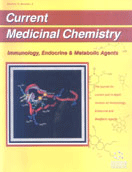Abstract
Regular consumption of fruit and vegetables is associated with reduced risks of cancer, cardiovascular disease and other aging-related diseases. Convincing evidence exists suggesting that an increased fruit, vegetables, and grains consumption is a relatively easy and practical strategy to significantly reduce the incidence of chronic diseases. Cancer chemoprevention intends to interrupt the carcinogenesis process, which includes initiation, promotion and progression of otherwise normal cells to reduce cancer. Despite the failure of β-carotene clinical trial to prevent lung cancer, the development of diet-derived constituents represents one of the major goal in cancer chemoprevention. A key question is whether a purified phytochemical has the same protective effects as does the whole food or mixture of foods in which the phytochemical is present. Putative chemopreventive agents are identified on the basis of epidemiological and in vitro and in vivo studies. All these compounds present tumor-suppressing properties in animal models of carcinogenesis, and they interfere with cellular processes involved in tumor formation, such as suppression of NF-kB and AP1 activation, induction of apoptosis, downregulation of β-catenin expression and activation of ARE / EpRE-dependent gene expression. Phase I clinical trials have been completed only for few of these phytochemicals, and pilot phase II-III trials are planned. In this review, we will begin by describing the different methodological approaches in studying chemopreventive agents, followed by the description of the mechanisms by which these compounds act. Finally, we will review more in details data concerning well-known and promising chemopreventive phytochemicals.
Keywords: phytochemicals, cancer, chemoprevention, resveratrol, quercetin, curcumin, egcg, genistein
 16
16






